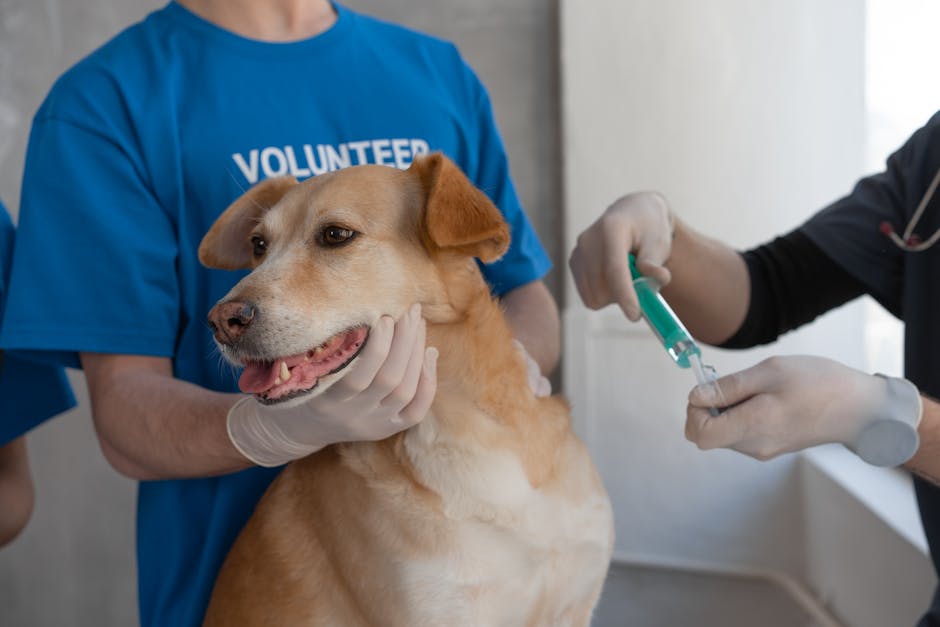Maintaining the health and well-being of our canine companions is paramount. A cornerstone of preventative care is vaccination, safeguarding against potentially debilitating and even fatal diseases. Understanding the crucial role of vaccinations in a dog’s life, and which ones are most pertinent, is essential for responsible pet ownership. This article delves into the important vaccinations for dogs, elucidating their significance and the specific diseases they combat.
A dog’s immune system, while robust, isn’t invincible. Certain infectious diseases can inflict significant harm, leading to illness, suffering, and sometimes, death. Vaccinations are designed to stimulate the immune system, preparing it to identify and neutralize these threats should exposure occur. This proactive approach to healthcare significantly reduces the risk of contracting numerous contagious illnesses.
Essential Canine Vaccinations: A Breakdown
Several vaccinations are considered crucial for most dogs. These cover a spectrum of pathogens, each with its unique potential for harm.
Core Vaccinations: The Foundation of Protection
Core vaccinations are considered essential for all dogs, regardless of lifestyle or environment. These protect against diseases that pose a widespread threat to the canine population and often have devastating consequences. Core vaccinations typically include:
* Rabies: This highly contagious viral disease is zoonotic, meaning it can be transmitted to humans. Rabies causes neurological complications and is invariably fatal if left untreated. Vaccination is not only vital for the dog’s protection but also crucial for public health. Annual booster doses are recommended to maintain immunity.
* Distemper: This viral infection affects multiple organ systems, impacting the respiratory, gastrointestinal, and nervous systems. The severity of symptoms can vary, but this disease can result in significant morbidity and mortality in unvaccinated dogs. Vaccinations are critical to protecting against the infection’s debilitating effects.
* Parvovirus: This highly contagious virus primarily affects the gastrointestinal tract and can cause severe dehydration and death. The rapid onset and potential for severe consequences underscore the imperative for prompt vaccination. Often given in combination with other vaccines, it is a cornerstone of canine health management.
* Adenovirus Type 2 (CAV-2) (Infectious Canine Hepatitis): This virus targets the liver and respiratory system. Symptoms can range from mild discomfort to severe illness, potentially leading to lasting organ damage or even death. Vaccinating dogs against CAV-2 strengthens their resistance to this dangerous pathogen.
* Parainfluenza: This virus predominantly affects the respiratory system, causing inflammation and often resulting in secondary bacterial infections. Vaccinating against parainfluenza can lessen the severity of symptoms and reduce complications.
Non-Core Vaccinations: Tailoring Protection to Specific Needs
Beyond the core vaccinations, certain other vaccines may be recommended based on a dog’s specific circumstances. These non-core vaccinations include:
* Bordetella: This bacterial infection leads to kennel cough, a highly contagious upper respiratory tract illness. Dogs in frequent contact with other animals, such as those attending dog parks, boarding facilities, or dog shows, may benefit from a bordetella vaccine. The risk of exposure necessitates this type of tailored vaccination.
* Leptospirosis: This bacterial disease can be transmitted through contaminated water or soil. Dogs who spend time outdoors or near bodies of water might benefit from a leptospirosis vaccination. Exposure risk dictates the necessity of this vaccine.
* Lyme Disease: In regions where Lyme disease is prevalent, dogs can benefit from vaccination. Early intervention is crucial in managing this bacterial infection transmitted by ticks. Veterinarians can assess the risks based on geographic location.
* Other Specific Diseases: Depending on the dog’s lifestyle, breed, or geographic location, other vaccinations, such as those against specific strains of canine influenza or coronaviruses, may be necessary.
Vaccination Schedules and Considerations
Vaccination schedules vary based on the type of vaccine and the age of the puppy or dog. Puppy vaccinations are often given in series to ensure optimal immunity, followed by booster shots later in life to maintain the protection. It’s crucial to consult with a veterinarian to develop a personalized vaccination plan that aligns with a dog’s specific needs. Additionally, veterinarians play a key role in addressing any concerns or questions regarding specific vaccination protocols.
Factors that may influence the vaccination schedule include the dog’s age, prior exposure to diseases, health status, lifestyle, and geographic location. Regular veterinary checkups are essential to ensuring the continued health and protection of the canine companion.
Ultimately, responsible pet ownership requires proactive measures for disease prevention. The importance of vaccination cannot be overstated, offering a critical safeguard against debilitating and potentially fatal illnesses. A comprehensive understanding of the required vaccinations, tailored to individual circumstances, plays a pivotal role in ensuring a healthy and fulfilling life for our beloved canine companions.
